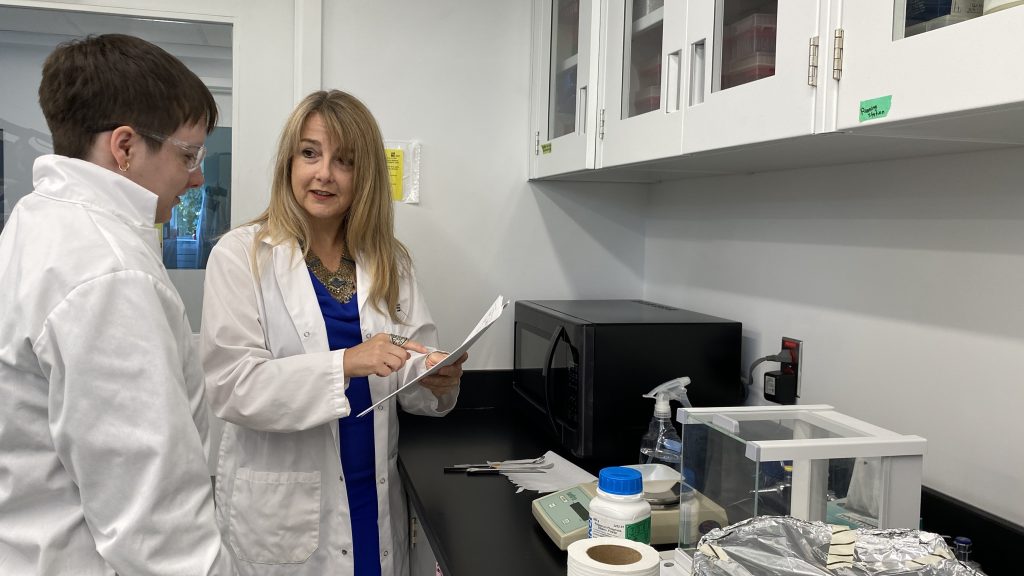Our immune systems work hard to fight off illnesses like chronic infections. But eventually, these immune cells become burnt out.
Cell exhaustion is one of the reasons why immunotherapy, a treatment that uses a person’s own immune system to fight cancer, can become less effective.
Researchers at Quebec’s National Institute for Scientific Research (INRS) in the Montreal area have made a breakthrough discovery, a molecule that helps immune cells stay energized longer.
The human body fights off an infection by sending special white blood cells called T-cells to help.
“T-cells, they are elicited and stimulated all the time,” said Professor Simona Stäger. “the problem is that they keep fighting and then they become exhausted.”
Stäger and her team, based at the INRS Armand-Frappier Santé Biotechnologie Research Centre, says a molecule called IRF-5 might help T-cells stay stronger during long-lasting infections. Researchers have found T-cells wear out faster when they don’t have enough of this molecule.
“The IRF-5, we didn’t know what it was doing,” Stäger said. “And then we saw that it’s regulating the metabolism of the cells, particularly the lipid metabolism. And they are actually supporting the health of this mitochondria during chronic infections.”
This result was uncovered by Linh Thuy Mai, one of Stäger’s then-students, showing that IRF-5 helps protect the immune cell’s metabolism, keeping the cells energized so that they can keep fighting infections.
Related:
“When she showed me the results, we really were really astonished,” said Stäger. “Sometimes students are better than the PIs (Principal Investigators).”
Researchers used mice bred with and without IRF-5 and exposed them to a chronic virus. They found that T-cells that were missing the molecule became more exhausted than those without. They also discovered that the cells’ metabolism was weaker — making it harder for them to stay alive.
“The metabolism of the cell is also very important because it’s failing and the mitochondria of these organelles that are important for energy production are also failing and being dysfunctional,” Stäger said.
Stäger said that the next step is seeing what IRF-5 does when it is modified.
If researchers find a way to enhance its effects, it could open the door to new ways of improving the stamina of our immune cells, she said, which would make it easier to treat long-term infections and even different cancers.
“We would like to do is to try to modulate its expression to be able to probably slow down even more this process of exhaustion,” Stäger said.





